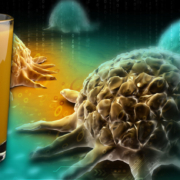Chemicals in Our Water
Here’s one for you to mull over. We’ve been exposed to this chemical group since the 1940s. It’s not just one chemical such as TCE from Saturday’s Memo; there are thousands of forms of these chemicals. Based on samples from large groups of people, over 98% of us have them in our bodies; they’re found in rainwater all over the world. At this point, we don’t really know what diseases or conditions can result from this group of chemicals. On top of all that, it’s slow to eliminate from the body and gets worse as we get older.
The chemical group is perfluoroalkyl and polyfluoroalkyl substances, more recognizable by its acronym PFAS. This non-flammable group of chemicals is found in many products including fire retardants, stain repellents—and until recently removed—cookware covered with Teflon. You may have seen the story of how Teflon production affected West Virginians in the movie “Dark Waters.” Here in west Michigan, we’re battling PFAS released into the water supply years ago by a shoe manufacturer.
The major concern is that PFAS are in our water supply everywhere and will be there for a long time, even it were banned today. What surprised me is how little is known about the effects on our health.
There is some association with several forms of cancer such as testicular and kidney cancer. These epidemiologic studies of PFAS and cancers have been informative, but not entirely conclusive. Along with other chemicals known as hormone-disrupting chemicals, PFAS may affect fertility, contribute to miscarriages, and be a factor in early-onset puberty. It may increase non-alcoholic fatty liver disease in women. There are some associations but no overwhelming smoking gun at this point. Even with no definitive link to diseases, we don’t want them in our body. The problem is that there’s no known way of speeding up their elimination from our body. It can take years.
You may be thinking that this was less than satisfying. Yes, it was, but it doesn’t mean there’s nothing we can do; that’s how I’m going to finish up this look at chemicals on Saturday.
What are you prepared to do today?
Dr. Chet
Reference: Environ Res. 2021 Mar; 194: 110690.









